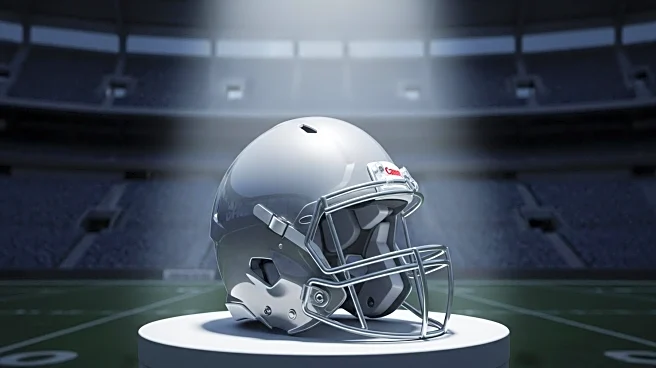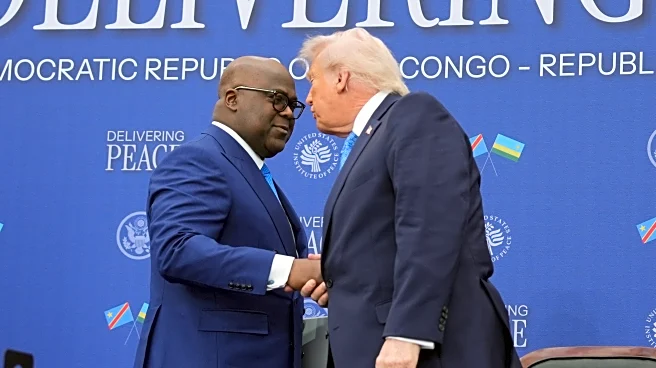What's Happening?
John Sears, known as Mr. Soundoff, has called for the abolition of preseason college football polls. He argues that the current system is outdated due to the increased parity in college football, largely driven by the transfer portal and Name, Image, and Likeness (NIL) agreements. Sears points out that teams like Texas and Penn State, which were ranked first and second in the preseason, have now fallen out of the top 25 rankings. This, he suggests, highlights the unpredictability and inaccuracy of preseason polls, which he describes as 'an uneducated, unfair guess.' The call for change comes as college football continues to evolve with new dynamics affecting team performances.
Why It's Important?
The call to eliminate preseason polls is significant as it challenges a long-standing tradition in college football. Preseason rankings often influence perceptions and expectations, impacting team morale, fan engagement, and even media coverage. With the rise of the transfer portal and NIL deals, player movements and team compositions can change rapidly, making early predictions less reliable. Removing preseason polls could lead to a more dynamic and merit-based ranking system, potentially benefiting teams that perform well during the season but were initially overlooked. This shift could also affect how college football is marketed and consumed, as fans and analysts might focus more on current performance rather than preseason expectations.
What's Next?
If the movement to eliminate preseason polls gains traction, it could lead to significant changes in how college football rankings are determined. Stakeholders such as the NCAA, sports analysts, and media outlets might need to develop new methods for ranking teams that better reflect in-season performance. This could involve more frequent updates to rankings based on game outcomes and statistical analyses. Additionally, there may be discussions among college football conferences and teams about how to adapt to these changes and ensure fair representation in rankings. The response from fans and the broader sports community will also play a crucial role in shaping the future of college football rankings.










